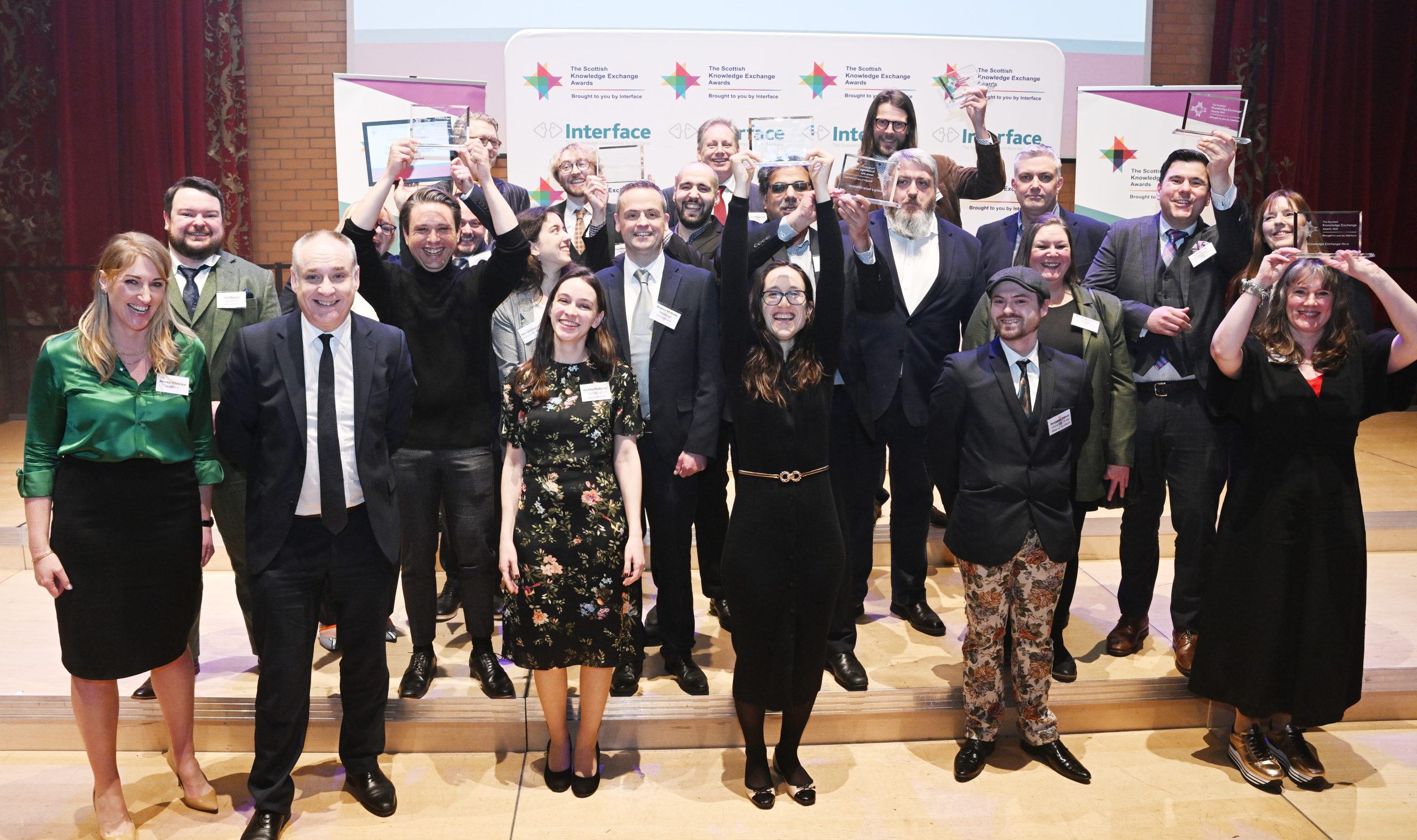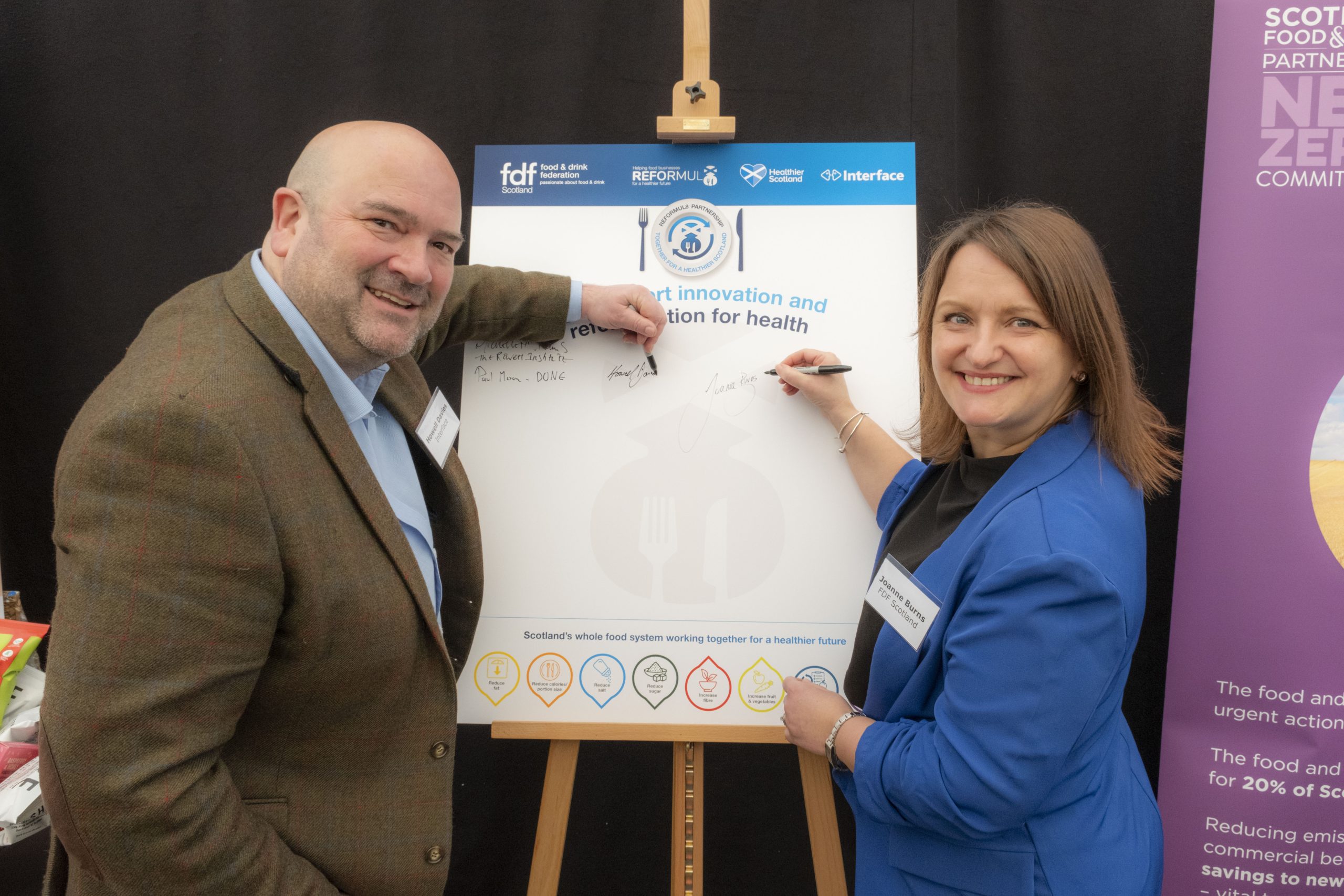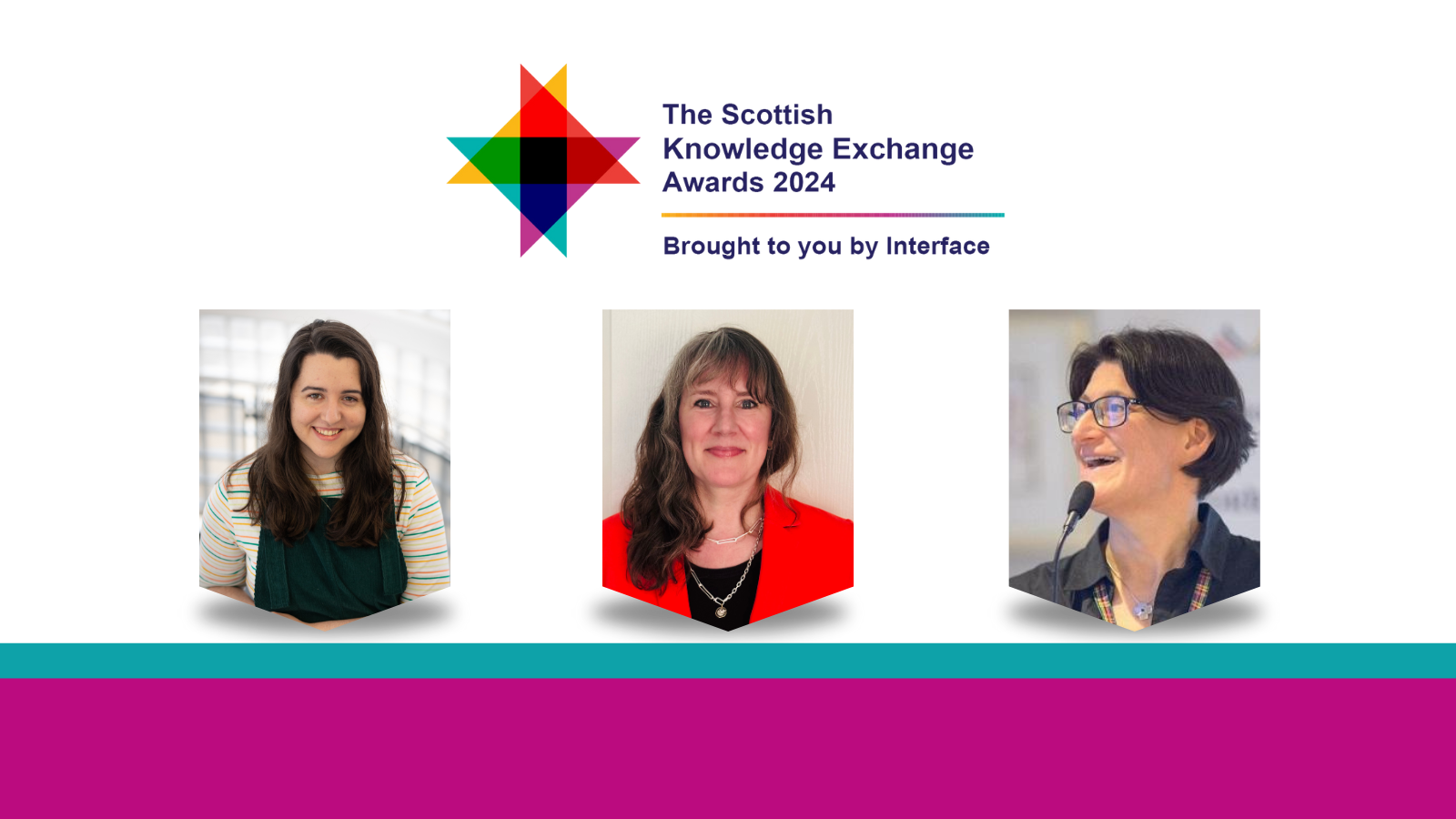Post
Economy and society significantly benefit from matching service

Significant benefits to Scotland’s economy and society have been highlighted in a new report regarding business-academic partnerships supported by Interface.
Local, national and international businesses have gained from tapping into Scotland’s universities and colleges through the matching service, which has team members located across Scotland.
The contribution to the Scottish economy from research and development projects between businesses and academics enabled by Interface was £88.9m GVA (gross value added), and supported 1,595 jobs, with expectations to reach £222.3 million GVA and 3,193 jobs.
The findings also captured the wider wellbeing and environmental benefits to society as the collaborative projects tackled major challenges such as health improvement, low carbon, community support, delivering education, helping young people, supporting international development and alleviating poverty.
Carried out by leading independent economic consultancy BiGGAR Economics Ltd, The Contribution of Interface to Sustainable and Inclusive Economic Growth report drew on evidence from a range of sources including the 329 collaborative projects which Interface brokered from August 2019 – July 2020, along with in-depth interviews with businesses who have benefited from the free service.
The report states: “The need to do things differently, to innovate, is crucial for Scotland’s recovery from COVID-19 and to meet its net zero carbon targets. The evidence presented demonstrates that Interface is a value for money service that delivers right across the economy, creating GVA and jobs while also driving sustainable and inclusive growth and well-being.”
Welcoming the report, Karen Watt, Chief Executive of the Scottish Funding Council, said: “Universities and colleges play a vital and effective role in supporting forward-looking businesses across Scotland to create new products and services through innovation. As we look towards economic recovery after the pandemic, this report is another reminder of Scotland’s resilience. It also highlights the part SFC-funded Interface plays as a catalyst for collaborations between businesses and academics.”
Interface has a successful history of business-academic partnerships with business demand for the service increasing consistently since it was established in 2005. Over the past months despite the COVID-19 pandemic, the team have serviced record breaking levels of demand with the need for businesses to co-design new products, processes and services to survive and drive economic recovery. The service has delivered over 2500 business academic collaborations.
Encouragingly, three quarters of businesses reported ongoing relationships with universities because of Interface brokerage, demonstrating the strength of the connections and collaborations made.
One business quoted in the report stated: “With everything I do now, Interface sits at the back of my mind, thinking is there a link with an academic that could help me with this issue?”.
Dr Siobhán Jordan, Director of Interface, said: “This report shows the significant gains right across Scotland, from the smallest community to the largest city, when innovation and ideas flourish through businesses and academic partnerships.
“We are in a unique position to make a real difference to all aspects of society through the connections we catalyse enabling world leading research to be purposeful.
Our regional team members are a bridge to local business and community networks as well as to universities, colleges and research institutes. We are touching all parts of society – from contributing to low carbon targets to making a difference to everyday lives. Crucially we are contributing to more fragile rural economies and across sectors hardest hit by the pandemic such as tourism, food and drink and hospitality.
“The outstanding achievements of the team at Interface is down to their translation of industry led challenges, understanding of how universities interact with industry for mutual benefit and extensive knowledge of funding and wider support opportunities.”
A range of case studies which highlight the economic and societal benefits of Interface-supported collaborations between businesses/organisations and universities/colleges can be found here.
The Contribution of Interface to Sustainable and Inclusive Economic Growth executive summary can be found here.
Note to editors.
The report is based on information provided to BiGGAR Economics Ltd. by Interface including impact data from 414 businesses, in-depth interviews with businesses and stakeholders, and data from previous surveys and consultations carried out since 2013.



